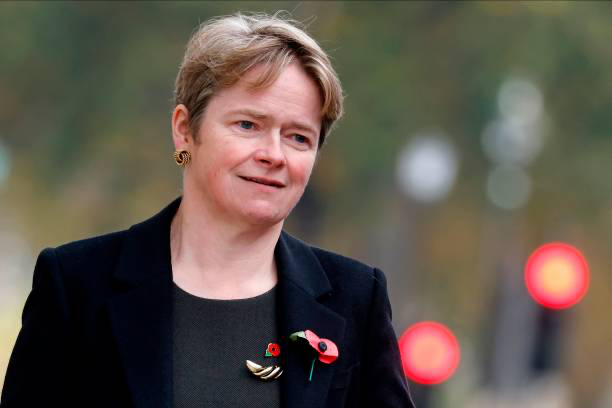High Court rules hiring process to bring in Dido Harding and Mike Coupe was unlawful

The High Court ruled today that the process behind the Government’s appointment of Dido Harding and Mike Coupe to senior emergency healthcare jobs without competition was unlawful.
The Court declared that the processes by which Matt Hancock appointed Dido Harding as Chair of the National Institute for Health Protection and Mike Coupe as Director of Testing, and the Prime Minister appointed Harding as Chair of Test and Trace, breached the public sector equality duty.
But the Court threw out claims brought by the Good Law Project that “personal or political connections” with politicians led to the appointments of Harding, a former TalkTalk boss, and Coupe, the former Sainsbury’s chief.
“The evidence provides no support for this at all. Baroness Harding had previous relevant experience of senior positions in large retail businesses and in the NHS. Mr Coupe had vast experience of managing complex public-facing organisations,” read the written judgment.
“The collective effect of the conclusions set out during this judgment is that the claim brought by Good Law Project fails in its entirety,” it continued.
By ruling that Boris Johnson and his Government acted unlawfully, the Court accepted the Runnymede Trust and Good Law Project’s argument that the recruitment process ignored the need to eliminate discrimination against, and advance equality of opportunity for, disabled and ethnic minority communities in the UK.
The Government’s decision to appoint Dido Harding and Mike Coupe ignored the effects of its recruitment practises on groups who are too often shut out of public life.
The Government also ignored its own internal guidance, which required Ministers to consider how discrimination law will be complied with.
The Divisional Court declared: “The Secretary of State for Health and Social Care did not comply with the public sector equality duty in relation to the decisions how to appoint Baroness Harding as Interim Executive Chair of the NIHP in August 2020 and Mr Coupe as Director of Testing for NHSTT in September 2020.”
“There is no evidence from anyone saying exactly what was done to comply with the public sector equality duty when decisions were taken on how each appointment was to be made.”
The court this morning
“What the public sector equality duty requires is not necessarily a particular outcome… Nevertheless, there must be some evidence of what precisely the decision-maker did in the circumstances of these cases to discharge the obligation when deciding the method by which each relevant appointment was to be made… We have considered with care the evidence filed on behalf of the Defendants and cannot find any such evidence.”
Dr Halima Begum, CEO of the Runnymede Trust, commented this morning: “Across the country, there are countless talented and well qualified public health specialists and administrators who could have successfully fulfilled the roles handed to Baroness Harding and Mr Coupe, whether or not on the basis of their interest in horse racing or the fact that their husband attended Eton.”
Begum added: “This case should never have required litigation given how self-evident it is that compliance with the law does not allow members of the Executive to simply appoint their friends to senior public sector jobs without giving, at a bare minimum, due consideration to the Equality Act.”
A spokesperson for Matt Hancock said: “We’re delighted the Department of Health has won yet another court case against the discredited Good Law Project. Claims of ‘apparent bias’ and ‘indirect discrimination’ have been quashed and thrown out by the High Court.
“What the judgement does make clear is that ‘the claim brought by Good Law Project fails in its entirety’, therefore highlighting the fact this group continues to waste the court’s time.
“The court judgment also states that ‘the evidence provides no support…at all’ for the allegation that Dido Harding secured senior positions on the basis of ‘personal or political connections’ in the government.
“They accept these ‘were urgent recruitment processes which needed to find highly specialised, experienced and available candidates within a short space of time.’
“Let’s not forget, we were dealing with an unprecedented global pandemic, where time was of the essence in order to protect and save lives.”